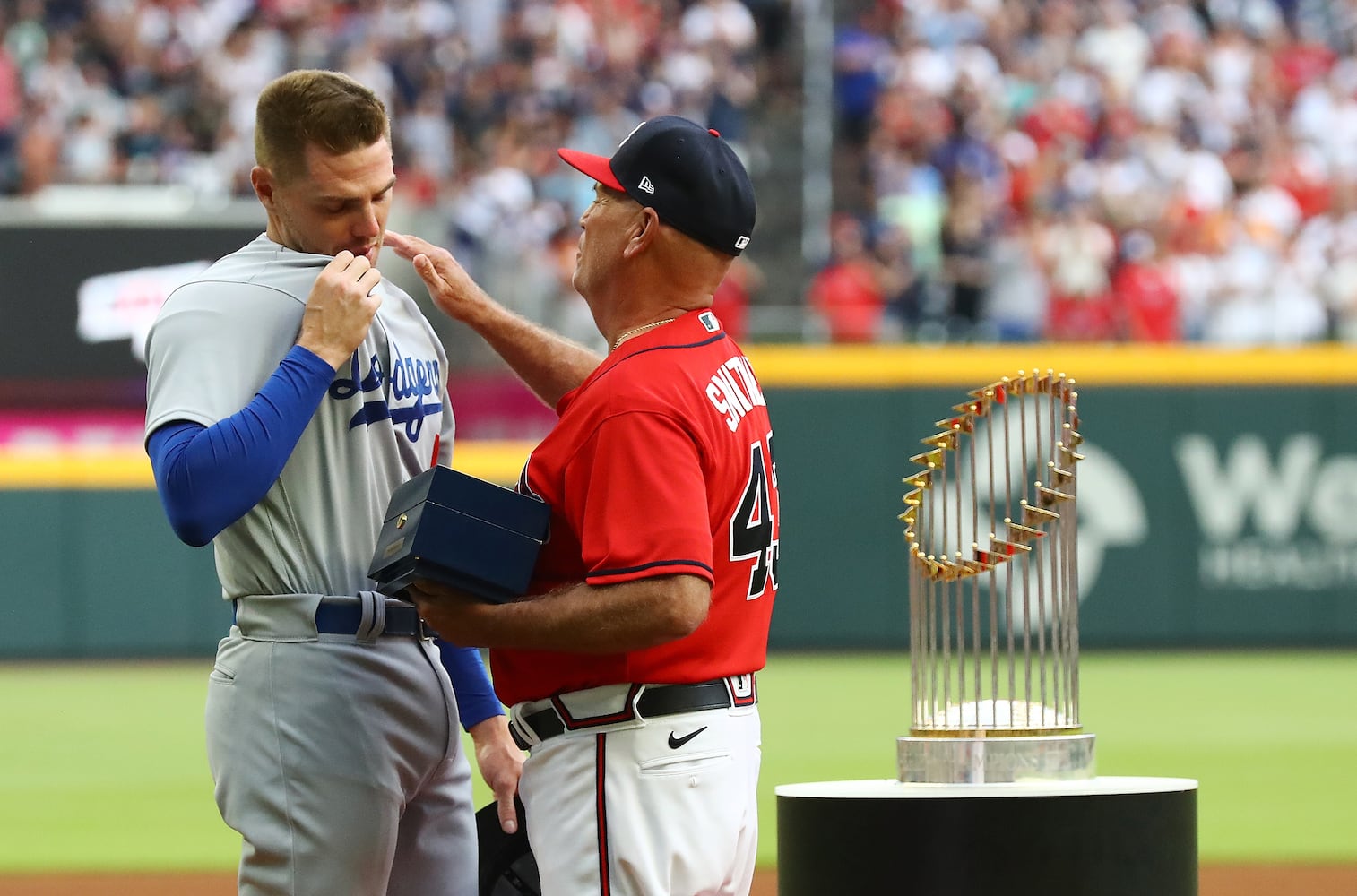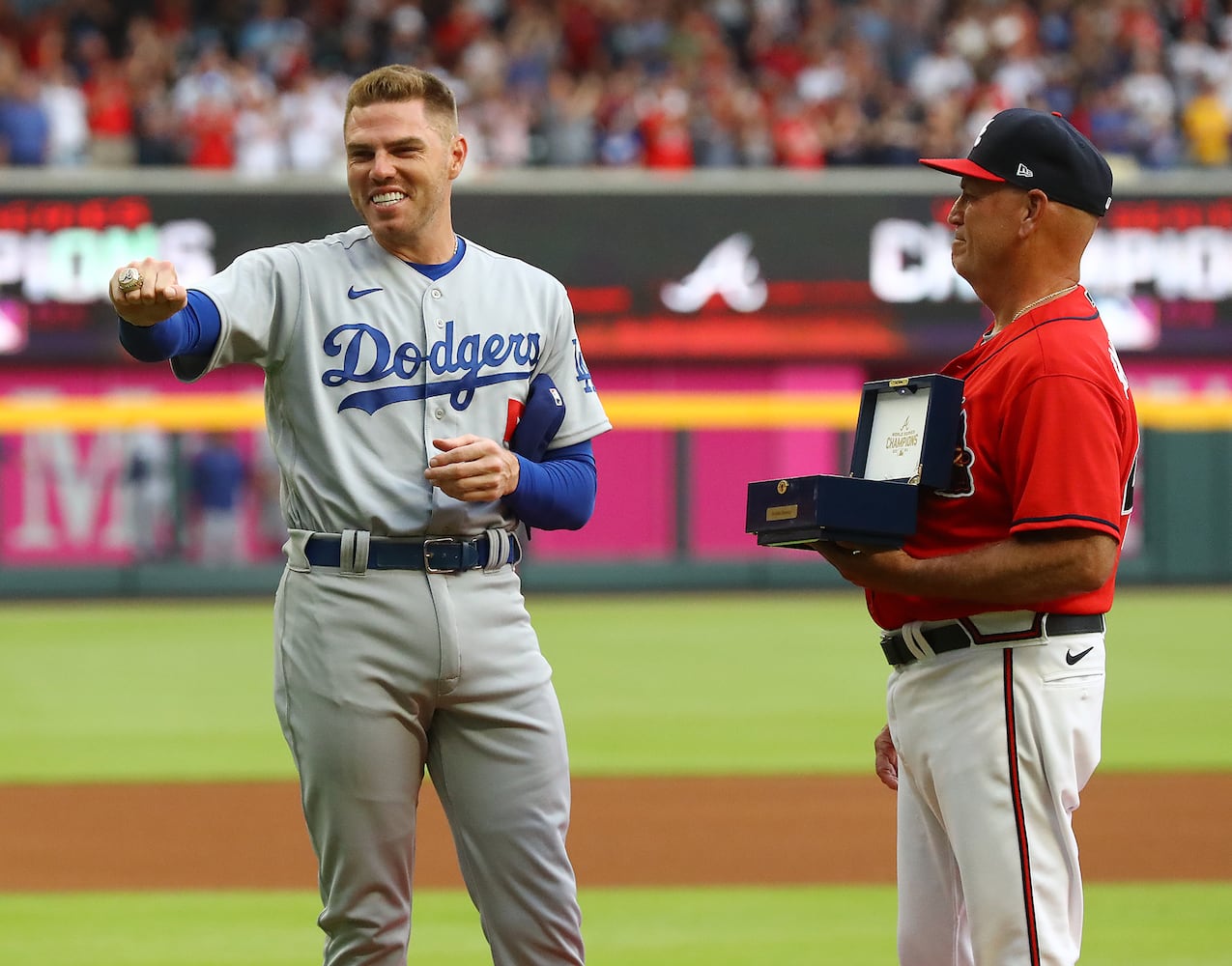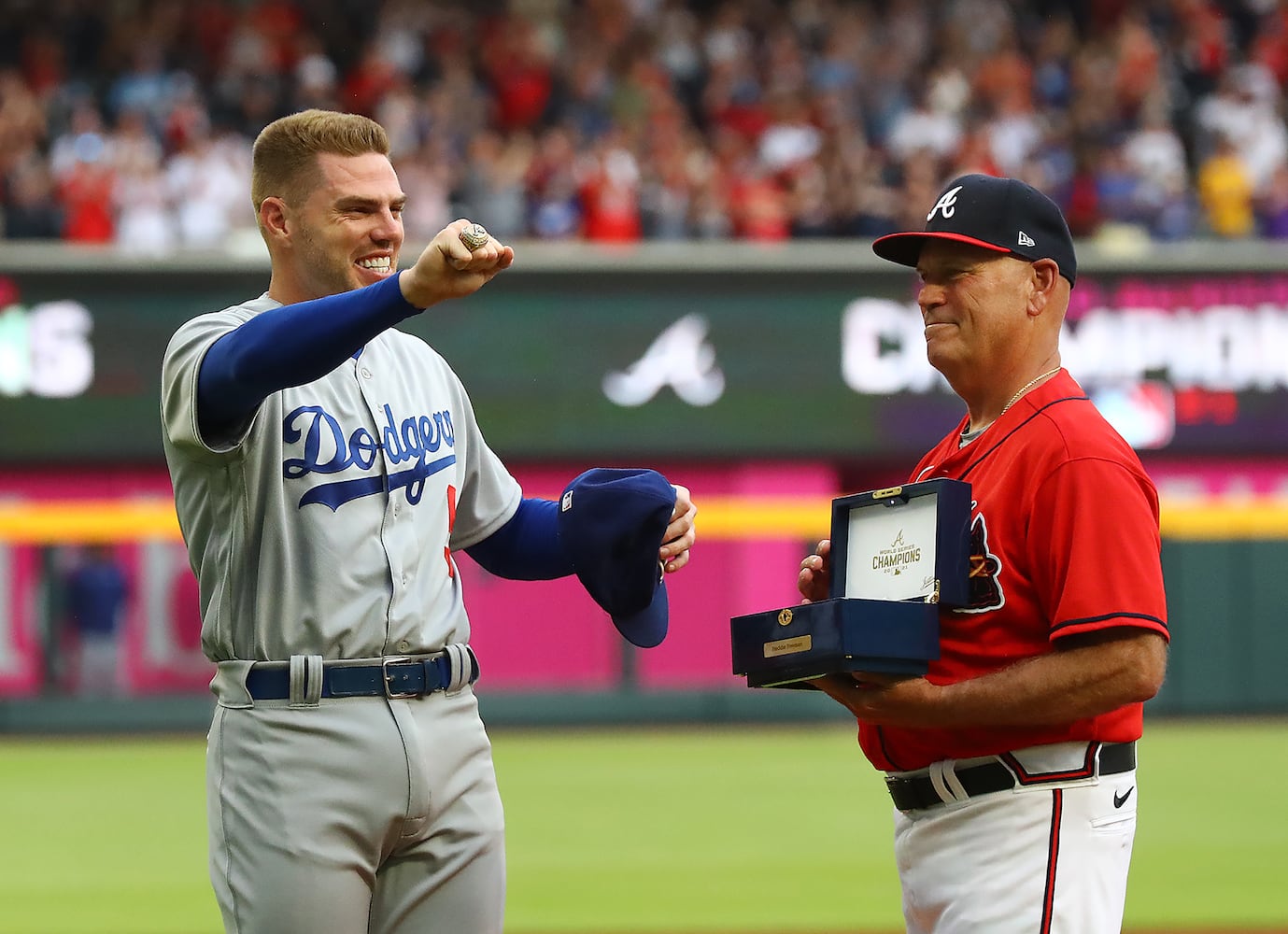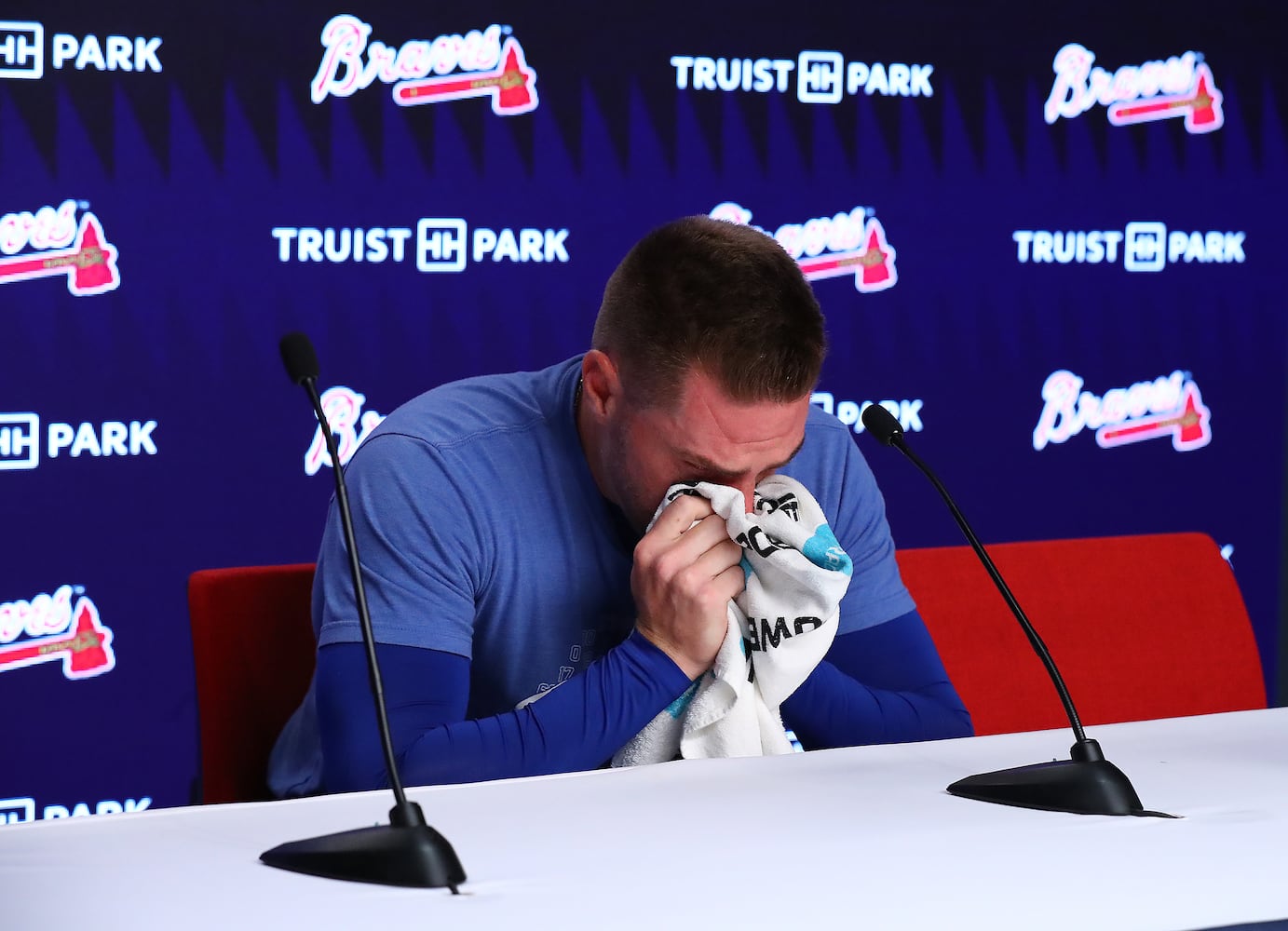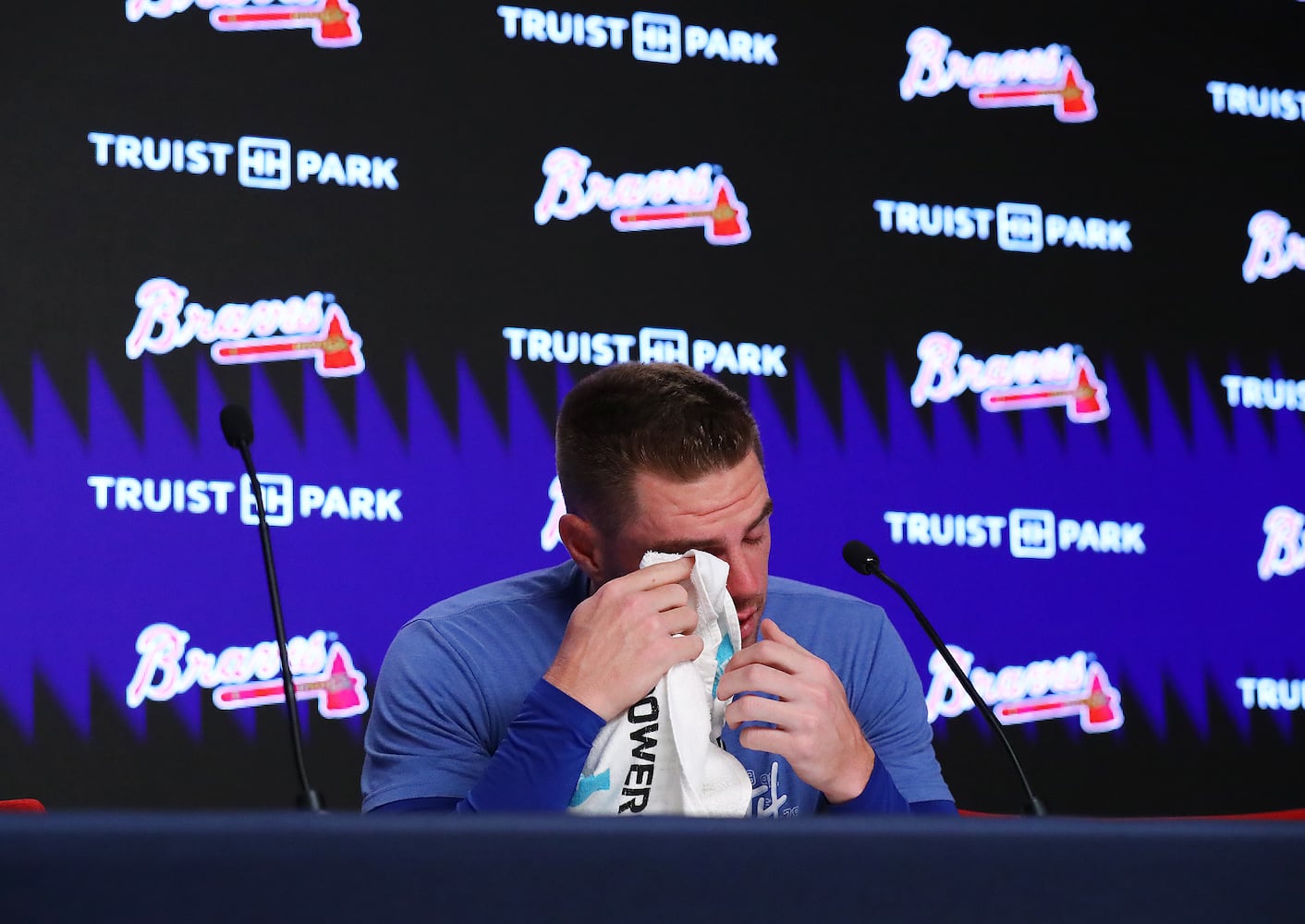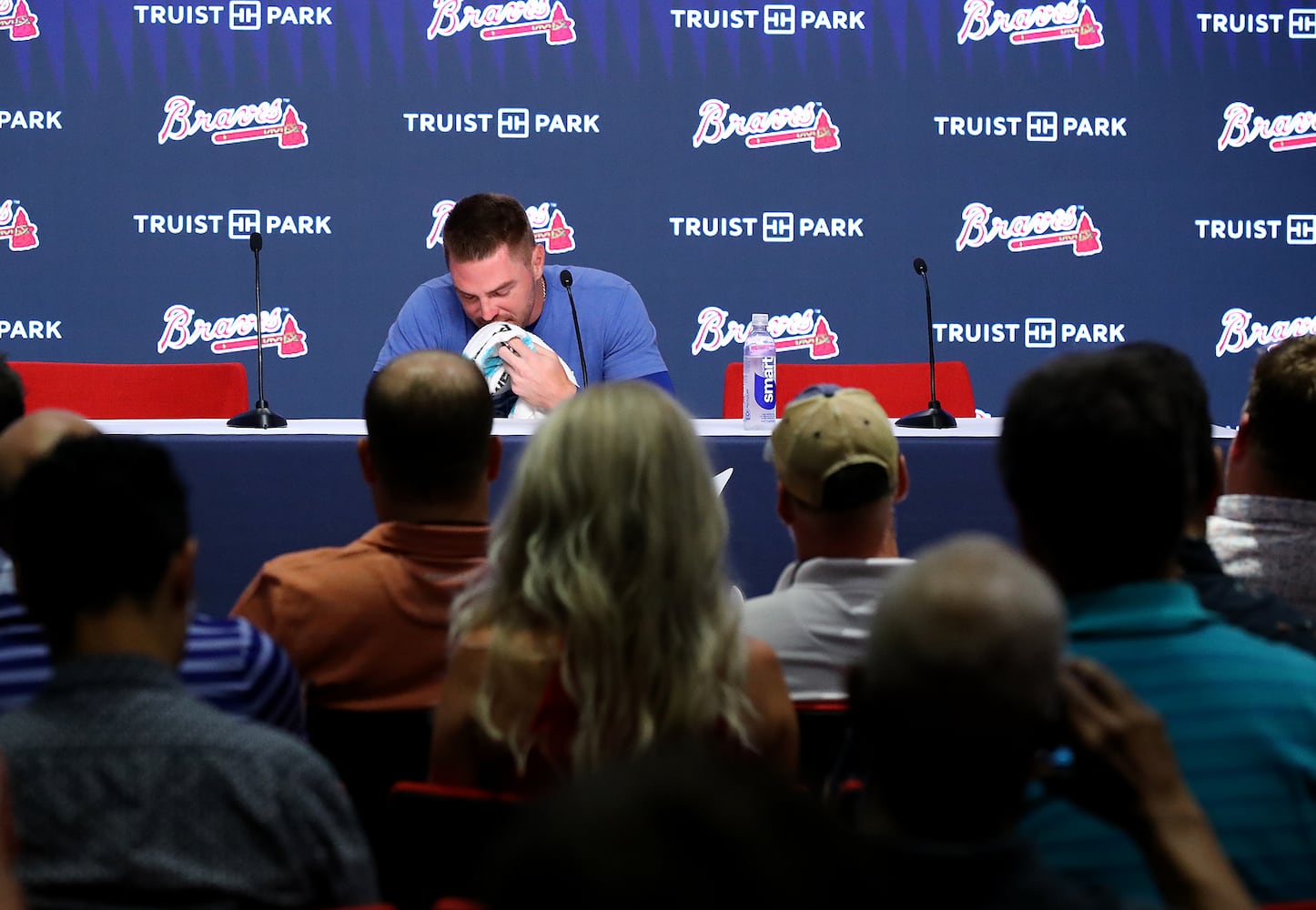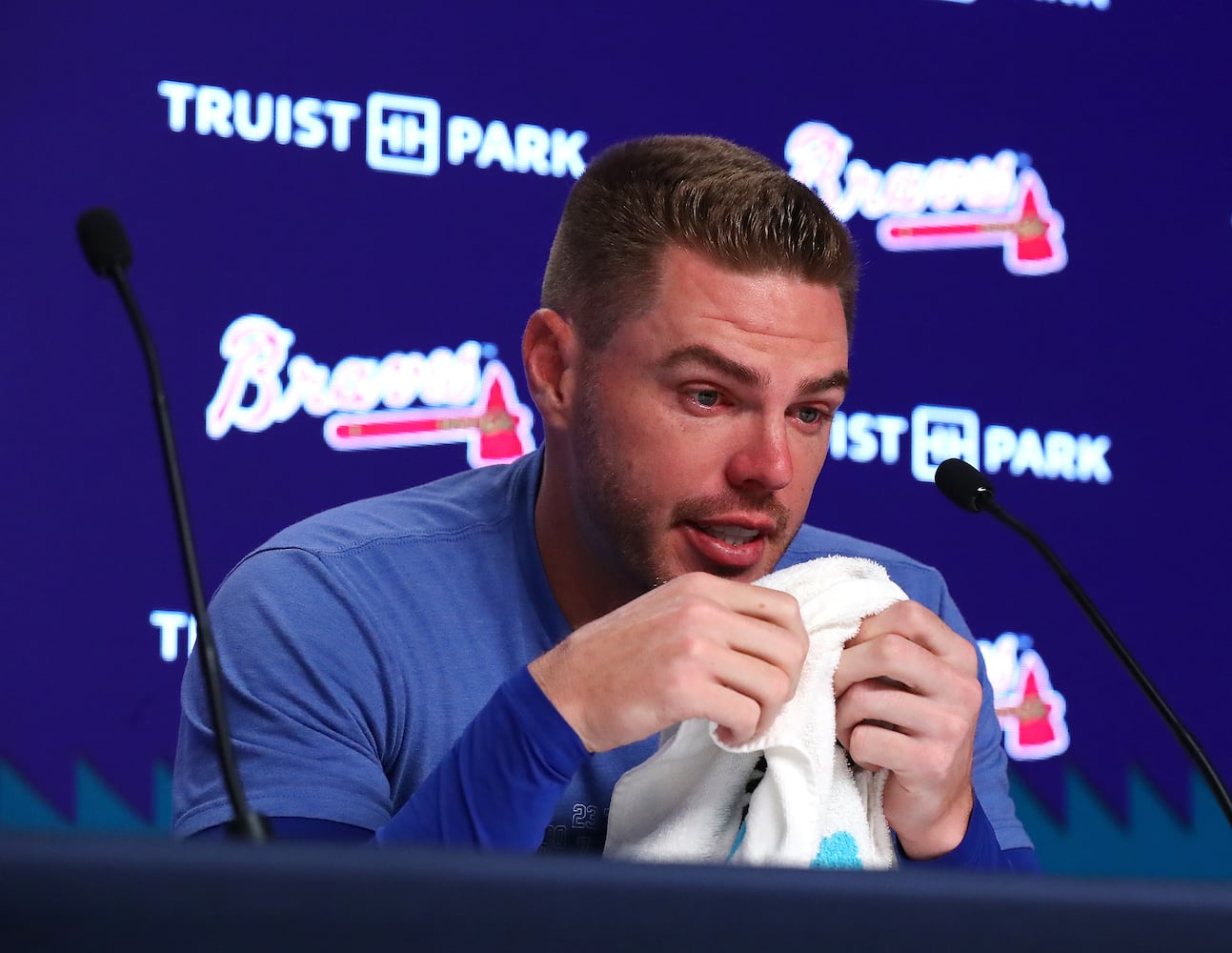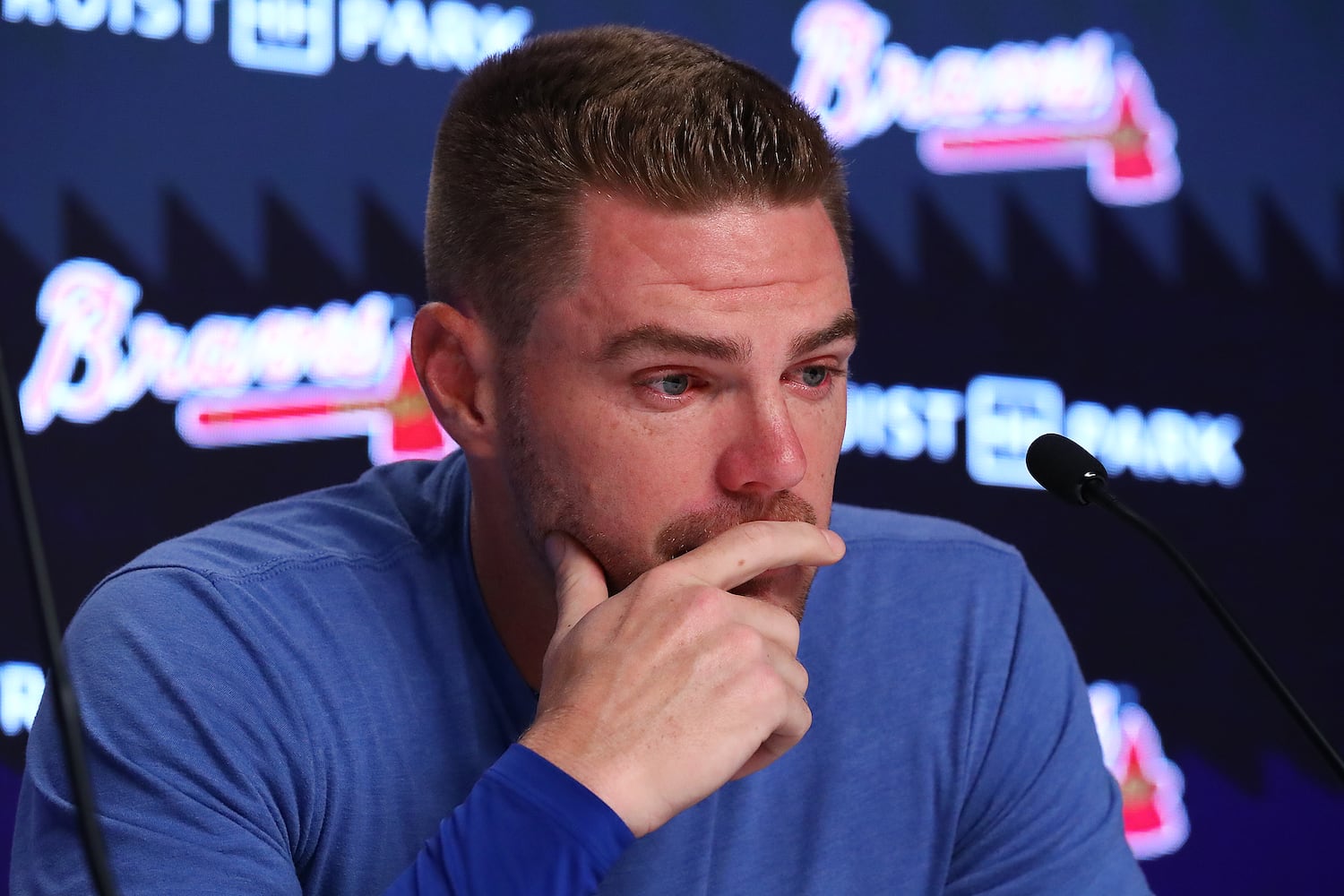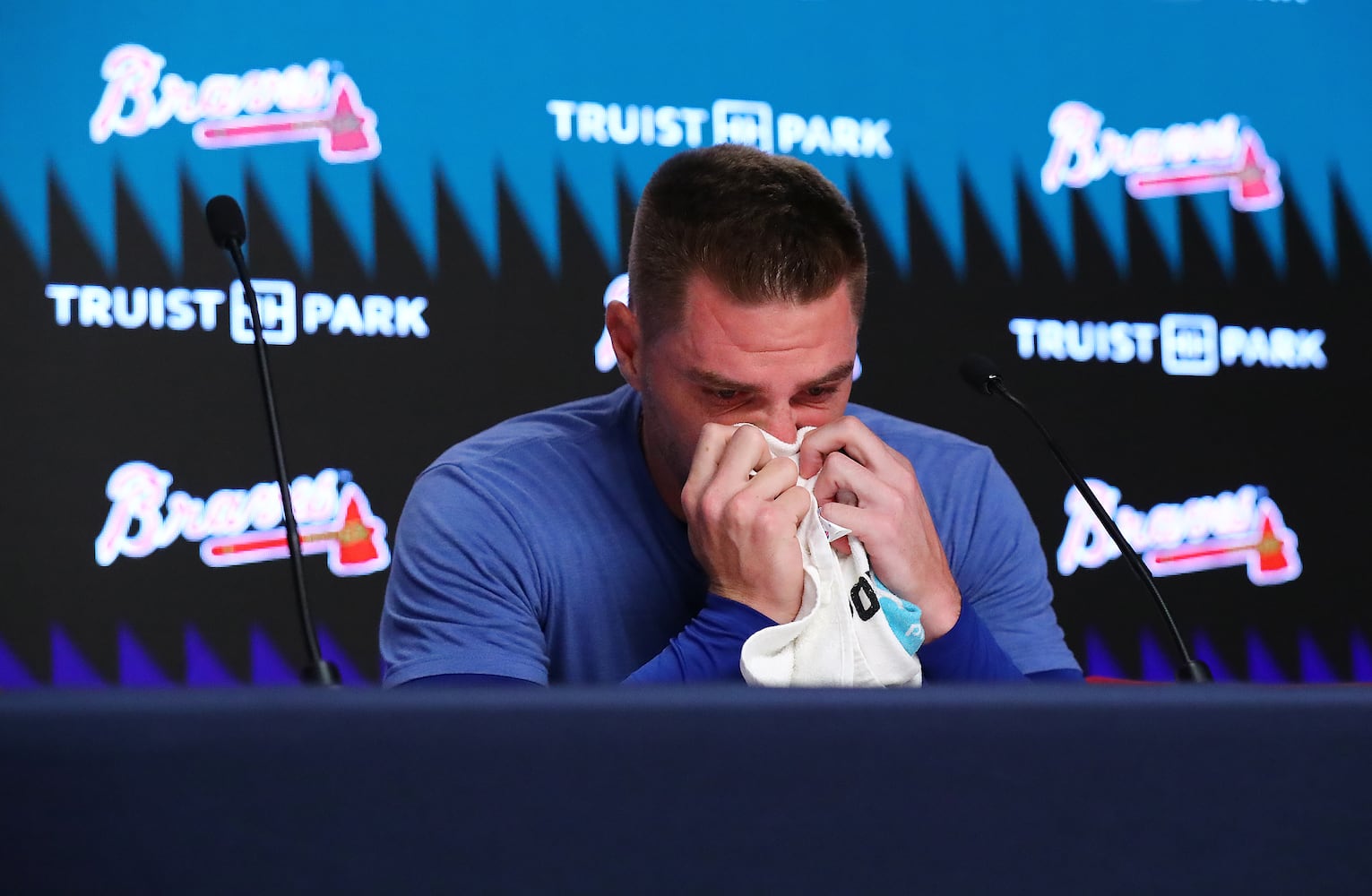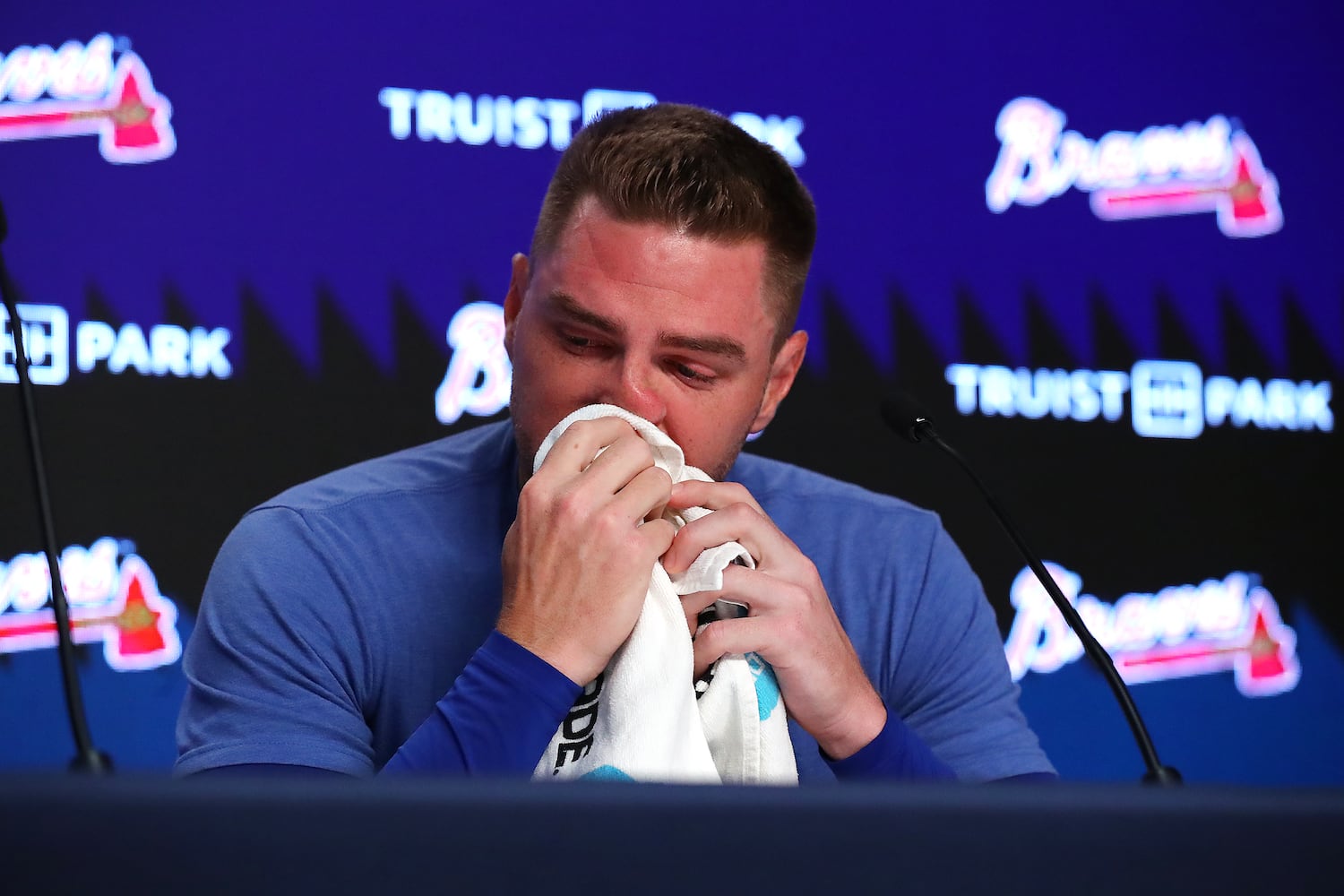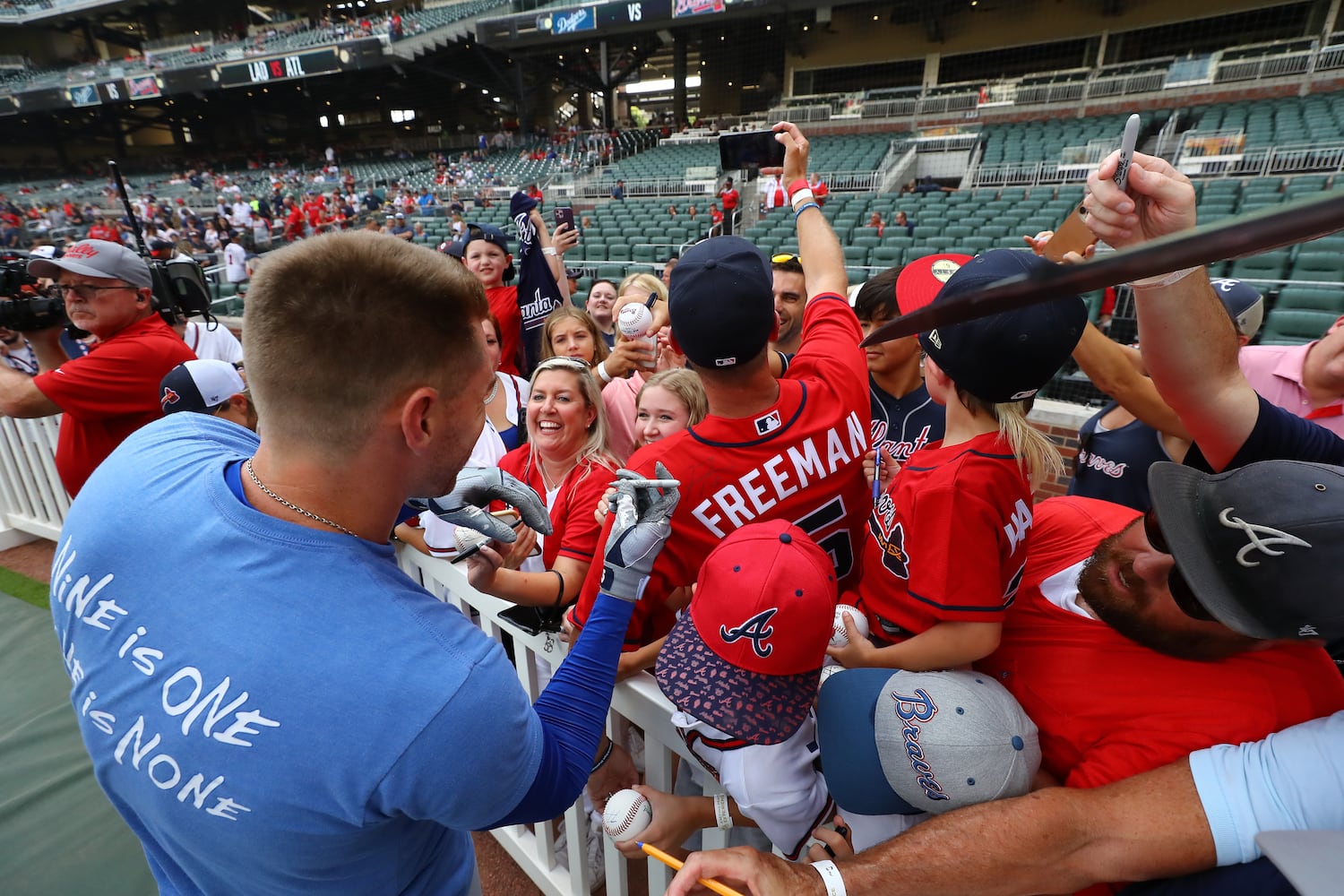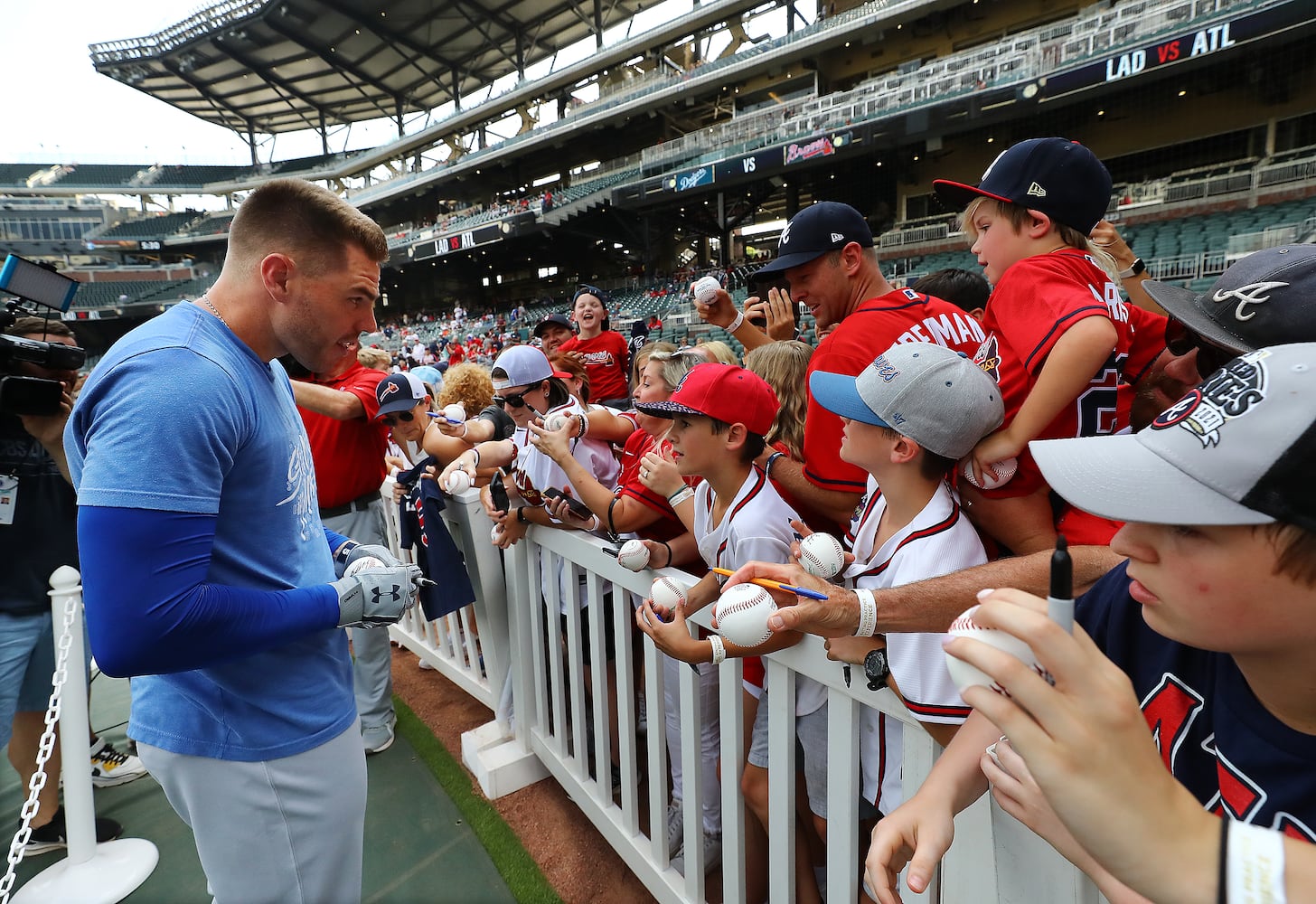It should be impossible to feel sorry for Freddie Freeman. But I do.
His return to Atlanta went off nicely, at least regarding tangible results. His new team won two of three. He got a key hit in the 10th inning of Game 3. He received his World Series ring. He drew standing ovations on an hourly basis. He hugged everybody in sight. And yet, by the end of the long weekend, something seemed off.
It was no surprise when he teared up at a pregame press session Friday. (The surprise would have been if he hadn’t.) When he was still getting misty Sunday night, you began to wonder, “Is he OK?”
It was as if he didn’t want to leave Atlanta ever again, which, being under contract to a team based in Los Angeles, he’ll be obliged to do. This disconnect wasn’t lost on at least one Dodger.
As Clayton Kershaw, Freeman’s teammate of three months, told esteemed AJC colleague Gabriel Burns: “I hope we’re not second fiddle. It’s a pretty special team over here, too. I think whenever he gets comfortable over here, he’ll really enjoy it.”
Freeman signed with L.A. in March. The weekend marked his first time playing against the Braves at Truist Park, but he faced his former employer in April out there, hitting two home runs in three games. Kershaw’s “second fiddle” reference was eye-opening. The “whenever he gets comfortable” was an intimation that, after almost half a season, the Dodgers aren’t sure he sees himself as a Dodger.
On Tuesday, Buster Olney of ESPN reported that, according to sources, Freeman had fired Excel Sports Management. Freeman released a statement via Mark Bowman of MLB.com: “Last weekend in Atlanta was a very emotional time for me and my family. I am working through some issues with my longtime agents at Excel. My representation remains a fluid situation and I will update if needed.”
Per Olney, Freeman is now listed as “self-represented.”
This wasn’t unexpected. In March, Olney reported that four sources confirmed Casey Close of Excel had given Braves general manager Alex Anthopoulos two contractual options and a one-hour deadline to pick one. Anthopoulos picked neither. A day later, he was negotiating with Oakland’s Billy Beane about first baseman Matt Olson. The next day, Olson was a Brave. The day after that, he signed an eight-year extension.
Freeman, apparently unaware of any ultimatum, was stunned the Braves moved on without letting him know. After signing with the Dodgers, he expressed derision over Anthopoulos choking up while announcing the Olson deal. “I saw (the tears),” Freeman said. “That’s all I’m going to say.”
Soon, though, Freeman called Anthopoulos to ask if he planned to travel with the Braves for their series at Dodger Stadium. The two spoke at length. Anthopoulos made the trip. They spoke again. In a letter to Braves fans, Freeman wrote, “First of all, my relationship with Alex Anthopoulos remains great.”
If the weepy weekend left us with anything, it’s that Freeman isn’t with the team of his choice – even though he was, by definition, a free agent. Chipper Jones, Freeman’s rescuer during Snowpocalypse 2014, has said he warned Freeman that anyone who becomes a free agent must be prepared to leave. That sounds simplistic, but Freddie, like most of us, figured the Braves wouldn’t let him leave.
It’s possible the Braves would have declined to meet Excel’s price without the attached deadline. Still, the most stunning part of this tangled tale was that Olson knew where he’ll be through 2029 before Freeman knew where he would be headed for spring training. In our Wifi’ed world, you’d think such a communications breakdown couldn’t happen. But Olson’s a Brave, Freeman’s a Dodger and one seems happier than the other.
Oh, and there’s this: According to Spotrac, Freeman’s contract with the Dodgers includes $57 million in deferred money. That shrinks the “real” value of his deal from $27 million per year over six years to $24.7M. The Braves’ initial offer was $135M over five years, an average annual value of $27M. (The Braves, to be fair, might never have offered a sixth season.)
Over time, Freeman might come to love L.A. He might write off his first months as a Dodger as a case of buyer’s remorse. He might hit seven homers against the Braves in the NLCS, which would make even Brian Snitker less eager to hug him. As of now, Freddie is the new holder of the MLB record for tears shed in a three-game series, and his relationship with the representation that helped send him west is, fittingly enough, fluid.
About the Author
